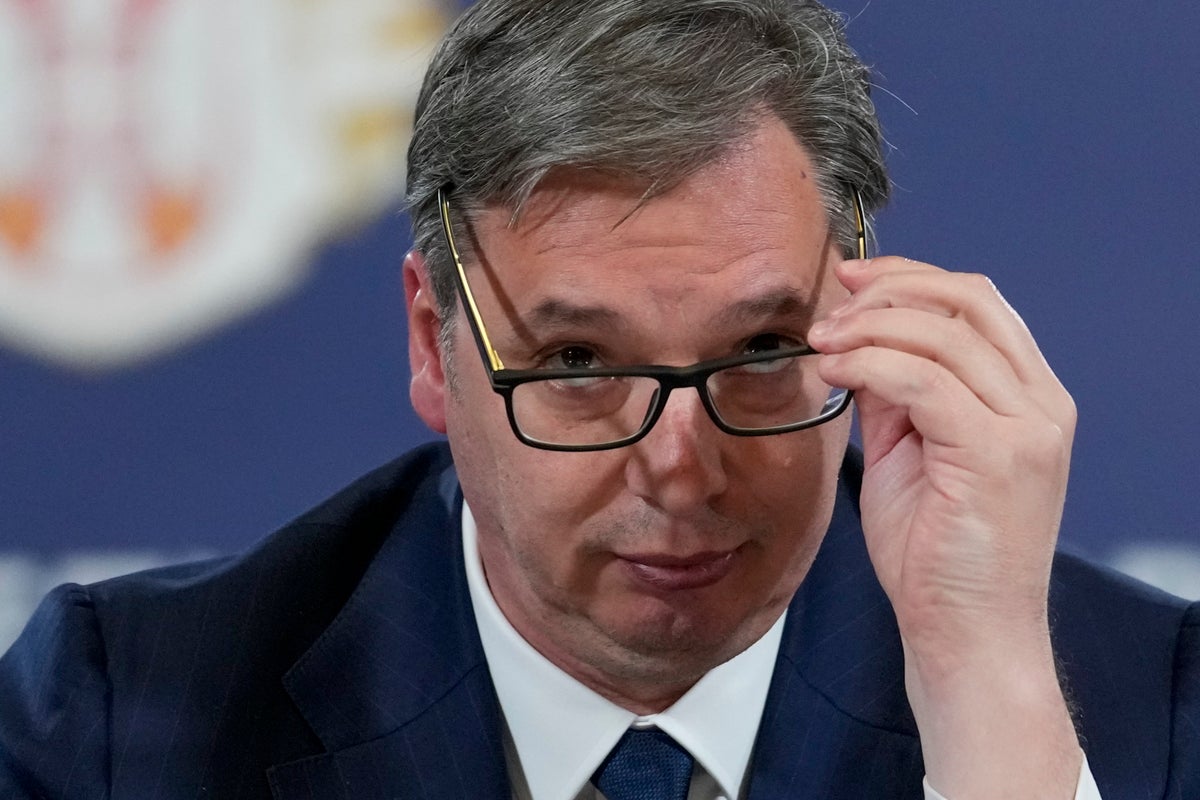
The Serbian president on Monday sharply criticized Western officials who are mediating talks on normalizing ties with Kosovo, calling them liars and fraudsters, and said the Serb minority in the former Serbian province will no longer tolerate foreign “occupation.”
Aleksandar Vucic spoke a day after local elections in Serb-dominated northern Kosovo that were overwhelmingly boycotted by the Serb voters there. As a result, ethnic Albanians were elected.
Vucic praised the vote boycott by the Kosovo Serbs, saying that it represented “a peaceful political uprising” against their “occupiers.” Serbs are claiming harassment by Pristina authorities and are demanding autonomy for their regions.
“Our people in Kosovo have shown in which country they want to live,” said Vucic, the populist leader who is known for his frequent anti-Western outbursts. He is apparently angry at the European Union and the U.S. for allowing Pristina to hold the vote when the Serb boycott, called by Belgrade, was expected.
The EU said on Monday that the elections were held in line with the legal framework of Kosovo and that efforts were undertaken for them to take place in a smooth and orderly manner.
“At the same time, the EU regrets that not all parties and communities made use of their democratic right to participate and vote in the elections,” the EU statement said. “The very low turnout, in particular among Kosovo Serb citizens, shows that this process is not and cannot be considered business as usual.”
Kosovo is a majority ethnic Albanian former Serbian province. The 1998-1999 war erupted when separatist ethnic Albanians rebelled against Serbia’s rule, and Belgrade responded with a brutal crackdown. About 13,000 people died, mostly ethnic Albanians. In 1999 a NATO military intervention forced Serbia to pull out of the territory. Kosovo declared independence in 2008.
Tensions have simmered ever since. Kosovo’s independence is recognized by many Western countries, but it is opposed by Belgrade with the backing of Russia and China. EU-brokered talks have made little headway in recent years, although their leaders last month tentatively agreed on how to implement a EU-sponsored plan to normalize relations after decades of tensions.
Vucic said he will “probably” take part in the next round of EU-mediated talks with Kosovo Prime Minister Albin Kurti, scheduled in Brussels on May 2, despite “expecting nothing” to come out of that meeting.
"I’m afraid that this is a prelude to a much deeper crisis,” Vucic said.







